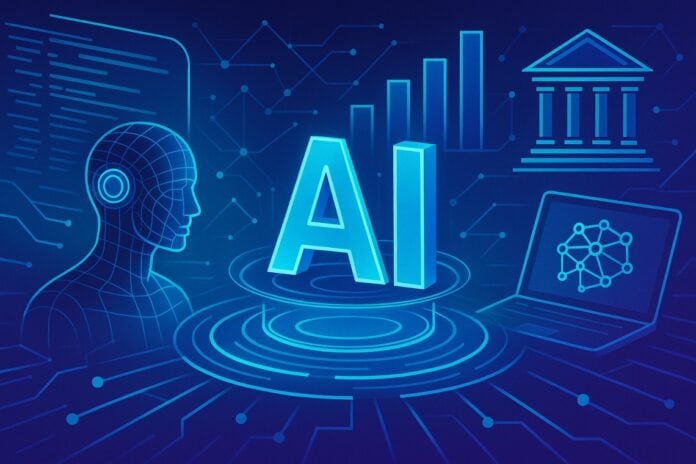The landscape of artificial intelligence (AI) continues to evolve rapidly, and today there are many news items bringing significant developments both on the European regulatory front and in terms of infrastructure investments.
Europe and the United States, institutions and big tech, local administrations and academic communities: all are converging around a common denominator, the urgency to understand, regulate, and capitalize on the boom of generative AI.
Summary
Europe Revisits AI Act and GDPR: A Change of Course?
In a twist marking a potential paradigm shift, the European Commission has announced its intention to ease some of the strictest regulations of the GDPR and the AI Act. This initiative comes after months of pressure from the tech industry, which complained about the difficulty of innovating in an extremely complex regulatory environment.
The proposal aims to simplify the use of anonymized data for AI model training, reduce bureaucratic burdens, and centralize oversight in a single European “AI Office”. At the same time, various categories of systems considered “high-risk” could benefit from a more flexible regime, with less onerous requirements compared to the initial version of the regulation.
However, criticisms are not lacking: according to some observers, this easing risks compromising the protection of citizens and representing a victory for large tech groups that have long been demanding more leeway.
The political debate is heated, and the future of the AI Act might turn out to be less stringent than anticipated, but also less effective in ensuring protection and transparency.
Microsoft and Google invest over 16 billion in European AI infrastructure
While Europe revises its regulations, American giants are accelerating the construction of new infrastructures to meet the growing demand for computing power. Microsoft has announced a massive investment in Portugal, where it will establish a strategic AI hub in Sines, equipped with tens of thousands of next-generation Nvidia GPUs.
In parallel, Google has confirmed a plan exceeding 5.5 billion euros to strengthen its data centers in Germany, aiming to support the growth of generative models and advanced cloud services.
Europe thus becomes one of the main areas of expansion for big tech, already grappling with the need to build energy and digital infrastructures capable of sustaining the pace of innovation. The race for GPUs, the demand for enormous amounts of energy, and the need to ensure sustainability and resilience intertwine in a continental modernization project.
Italy: Towards a More Mature Dialogue on AI
Even on a national level, the day brings significant updates. In Rome, the event “Human Intelligence, Artificial Support” is scheduled for November 27, promoted by Adnkronos Q&A, which will gather institutions, companies, and academics to discuss governance, ethics, sustainability, and the social impacts of AI. The goal is to consolidate a “responsible” approach that balances technological innovation and citizens’ rights.
Also today, in Lombardy, the SmartCityLab in Milan hosts a day dedicated to “urban innovation and generative AI,” a practical discussion aimed at municipalities. The discussion addresses very concrete issues: data interoperability, cybersecurity, management of digital services, and risks associated with the uncontrolled spread of AI solutions in administrative processes.
These events indicate a growing interest among Italian local administrations in adopting AI not as a “technological trend,” but as an operational tool to modernize public services.
AI Anthropic: the news on hacking
On the cybersecurity front, a rather unsettling scenario emerges: the AI company Anthropic has reported identifying a large-scale hacking campaign orchestrated using artificial intelligence. According to researchers, the attack was largely automated and is allegedly linked to the Chinese government. The perpetrators reportedly used “jailbreaking” techniques on AI models (in this case, Anthropic’s Claude), posing as cybersecurity professionals to circumvent security limitations.
This episode highlights not only a new dimension of cyber-warfare but also the power of AI in enhancing sophisticated attacks with less human intervention — and simultaneously the urgent need for more robust rules and defensive measures.
China: Baidu has unveiled new AI chips
Speaking of China, another significant development has emerged: Baidu unveiled two new AI-dedicated chips at its Baidu World event, the M100 (focused on inference) and the M300 (capable of training and inference), which are set to be released at the beginning of 2026 and 2027, respectively.
Alongside the chips, Baidu also announced two new high-performance computing super-nodes (Tianchi 256 and 512) that connect multiple chips to enhance computational capacity.
This development confirms how China is aiming to build an increasingly autonomous and competitive AI infrastructure, especially in light of the export restrictions on advanced chips imposed by the United States.
Nvidia: updates on Blackwell chips
Finally, the geopolitical tension surrounding AI remains a central theme: a group of American Republican senators praised the decision to not allow the sale of Nvidia’s brand-new “Blackwell” chips to China, calling it a strategic move to maintain American hegemony in the race for artificial intelligence.
This position is part of a broader context of technological competition between the United States and China, where control over access to the most powerful hardware is considered a key factor for maintaining an edge.
An Overview of Today’s AI News
Today’s AI news depicts a world in full transformation: Europe finds itself rebalancing the relationship between protection and innovation; the United States is investing billions to gain a structural advantage in AI; Italy, finally, is attempting to build a path of conscious and administrative adoption of artificial intelligence.
What emerges is a growing awareness that AI is no longer just an emerging technology, but an essential infrastructure for economic competitiveness and social cohesion in the coming decades.


